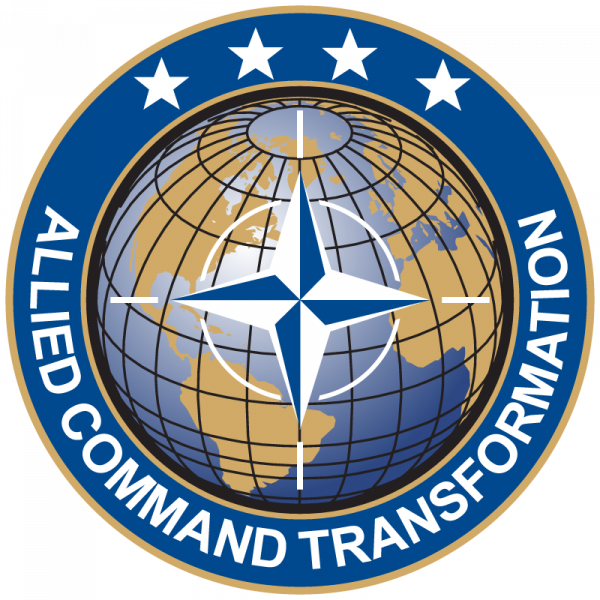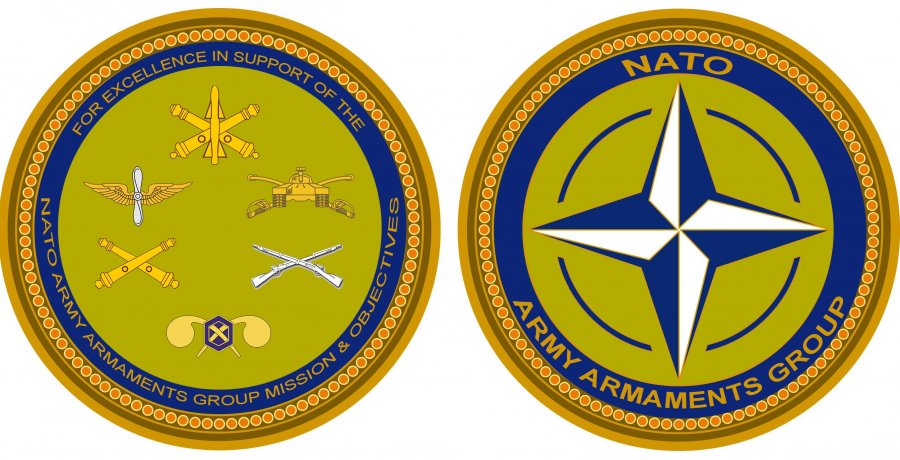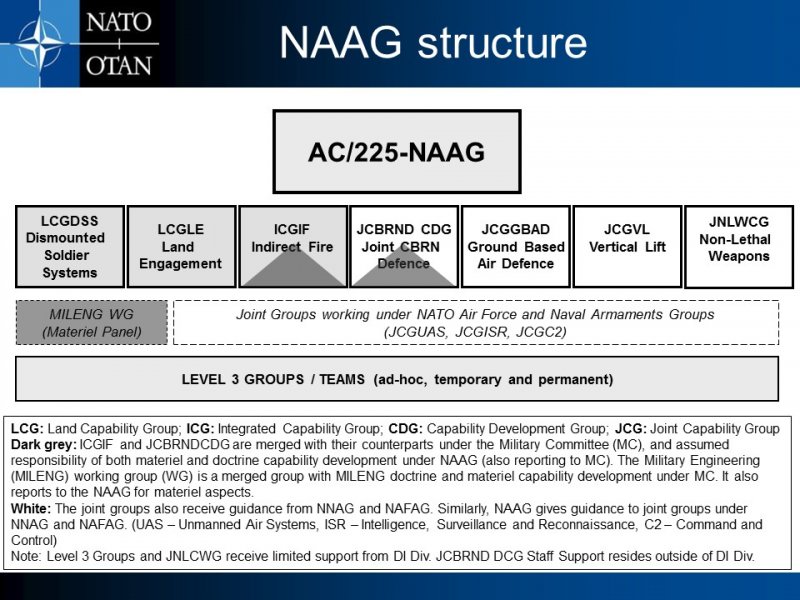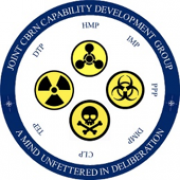FUTURE FORCES FORUM úzce spolupracuje s pracovními skupinami NATO, EDA a dalšími mezinárodními organizacemi. Zástupci těchto skupin a institucí jsou aktivně zapojeni do odborného programu, výstavy a dalších akcí v rámci FFF, což přináší našim vystavovatelům a partnerům výjimečnou příležitost osobně diskutovat zkušenosti z operací a požadavky pro budoucí vojenské a bezpečnostní projekty. Vystavovatelům a partnerům FFF se také nabízí výjimečná možnost prezentací během oficiálních jednání pracovních skupin. Pro více informací o možnostech prezentací nás prosím kontaktujte.
NATO CENTRES OF EXCELLENCE
NATO Centres of Excellence are nationally or multi-nationally funded institutions accredited by NATO. They train and educate leaders and special ists from NATO member and partner countries, assist in doctrine development, identify lessons learned, improve interoperability and capabilities, and test and validate concepts through experimentation. They offer recognized expertise and experience that is of benefit to the Alliance and support the transformation of NATO, while avoiding the duplication of assets, resources and capabilities already present within the NATO command structure.
ists from NATO member and partner countries, assist in doctrine development, identify lessons learned, improve interoperability and capabilities, and test and validate concepts through experimentation. They offer recognized expertise and experience that is of benefit to the Alliance and support the transformation of NATO, while avoiding the duplication of assets, resources and capabilities already present within the NATO command structure.
Although not part of the NATO command structure, they are part of a wider framework supporting NATO Command Arrangements. Designed to complement the Alliance's current resources, Centres of Excellence cover a wide variety of areas, with each one focusing on a specific field of expertise to enhance NATO capabilities. The overall responsibility for Centres of Excellence coordination and utilization within NATO lies with Allied Command Transformation, in co-ordination with the Supreme Allied Commander Europe.
Allied Command Transformation is in charge of the establishment, accreditation, preparation of candidates for approval, and periodic assessments of the centres. The establishment of a Centre of Excellence is a straightforward procedure. Normally, one or more members decide to establish a Centre of Excellence. The idea then moves into the concept development phase. During this phase the "Framework Nation" or "Nations" fleshes out the concept to Allied Command Transformation by providing information such as the area of specialization, the location of the potential Centre of Excellence and how it will support NATO transformation.
The primary purpose of Centres of Excellence is to assist with transformation within the Alliance, while avoiding the duplication of assets, resources and capabilities already present within the NATO command structure. They generally specialize in one functional area and act as subject matter experts in their field of expertise. They distribute their in-depth knowledge through training, conferences, seminars, concepts, doctrine, lessons learned and papers.
In addition to giving NATO and partner country leaders and units the opportunity to augment their education and training, Centres of Excellence also help the Alliance to expand interoperability, increase capabilities, aid in the development of doctrine and standards, conduct analyses, evaluate lessons-learned and experiment in order to test and verify concepts.
NATO SCIENCE AND TECHNOLOGY ORGANIZATION (STO)
Acts as NATO’s principal organization for science and technology research.
Defence Science and Technology (S&T), in the context of NATO, is defined as the selective and rigorous generation and application of state-of-the-art, validated knowledge for Defence and Security purposes. The term is broadly inclusive of the physical, engineering, information, human, medical and social sciences.
NATO S&T is comprised of activities that contribute to the generation and exploitation of scientific knowledge and technological innovation, addressing the short-, medium- and long-term horizon. NATO S&T includes programmes and activities that Nations, NATO bodies and Partners elect to perform within the trusted NATO framework. NATO S&T serves the Security and Defence posture of the Nations and NATO, and supports the core tasks of the Alliance as set out in the Strategic Concept. The vast majority of NATO S&T work is funded directly by the Nations.
NATO ARMY ARMAMENTS GROUP (NAAG)
The NATO Army Armaments Group (AC/225-NAAG) is one of the three Main Armaments Groups (MAG) subordinate to NATO's Conference of National Armaments Directors (CNAD).
The basic mission of the NAAG is to support nations achieving the objectives of the NATO Land Forces armaments cooperation. Through its formal and informal subordinate groups, the NAAG promotes interoperability of Alliance as well as Partner Armed Forces by means of information exchange, materiel standardization, and copoperation activities.
Tha NAAG structure consists of various expert working groups whose annual meetings are traditionally being organised within the FUTURE FORCES FORUM in Prague in order to support the information exchange and networking of the subject matter experts from military, industry, and academia.
The NAAG structure is as follows:

NAAG LAND CAPABILITY GROUP DISMOUNTED SOLDIER SYSTEMS (LCG DSS)
Over 200 international experts, members of national acquisition systems and standardization offices from more than 28 NATO Allies and partner nations in the area of individual systems - equipment, protection and armament.
LCG DSS Experts Cover:
- Combat Clothing, Individual Equipment & Protection – All issues related to the combat clothing, individual equipment and protective equipment of dismounted soldier systems. The main scope is a key component of Integrated Personal Protection.
- Small Arms Ammunition Interchangeability – All technical aspects of Small and Cannon Calibre Ammunition (up to and including 40 mm and the ancillary items such as links, clips, magazines, bandoliers, boxes, etc.).
- Soldier Capabilities Analysis Group (SCAG) – Assessing the operational needs of coalition tactical dismounted forces.
- C4I & System Architecture (SA) – Identifying and maintaining interoperability between soldier systems and between soldier systems and tactical vehicles. Interfaces include plugs, connectors and electrical and data exchange protocols, digitization and the ability to transfer battlefield information between soldiers during dismounted operations of nations.
- Weapons & Sensors (W&S) – Issues related to soldier's weapon systems, grenades and shoulder launched and guided anti-tank weapons, as well as dedicated sensors including day and night sights, laser designators, tactical lights and fire control systems. Weapon system includes the weapon itself, different types of ammunition and the dedicated accessories, the interface of weapons and sensors with the various other parts of the soldier system and relevant Combat ID related Standards.
- Sub Group: W&S Sensor Team of Experts
- Sub Group: W&S Suppressor Team of Experts
- Power & Connectors – Identification of soldier system power connectivity requirements, development of power and data electrical connectivity standards and common format power sources. Their emphasis is on providing power to the dismounted soldier and soldier systems within a coalition operation.
- There are also various Ad Hoc groups or Teams of Experts and/or Quick Reaction Teams as necessary to accomplish its mission
Skupina má oficiální zasedání v rámci FFF 2022.
NAAG JOINT NON-LETHAL WEAPONS CAPABILITY GROUP (JNLWCG)
Over 25 international experts in the field of non-lethal weapons from the NATO and Partner countries.
The JNLWCG has three sub-groups and teams of experts:
- MMW ToE
- NLKE ToE
- E&O + C&D ToE
Skupina má oficiální zasedání v rámci FFF 2022.
NATO DETECTION, IDENTIFICATION AND MONITORING PANEL (DIMP)
The DIMP mission is to provide technical and operational advice, foster interoperability, and establish technical and operational standards in the areas of CBRN detection, sampling, identification, and monitoring, including supportive actions against the proliferation of CBRN substances. The body also identifies new CBRND Capability Requirements, which includes providing information (up to unequivocal proof) concerning the first use of Biological, Chemical and Radiological agents, to NATO political and military authorities to support timely decision making.
including supportive actions against the proliferation of CBRN substances. The body also identifies new CBRND Capability Requirements, which includes providing information (up to unequivocal proof) concerning the first use of Biological, Chemical and Radiological agents, to NATO political and military authorities to support timely decision making.
The DIMP is one of the most important subordinate panels to JCBRND-CDG which is one of the most important NATO CBRN Capability Development working groups. The panel consists of about 45 international experts.
Panel má oficiální zasedání v rámci FFF 2022.
NATO HAZARD MANAGEMENT PANEL (HMP)
The JCBRND-CDG has seven subordinated panels that cover the responsibilities of the JCBRND-CDG in support of the Alliance’s prevention of the proliferation of WMD and defending against CBRN Threats. The Hazard Management Panel is one of the JCBRND-CDG sub-panels and consists of about 25 international experts.
Panel má oficiální zasedání v rámci FFF 2022.




